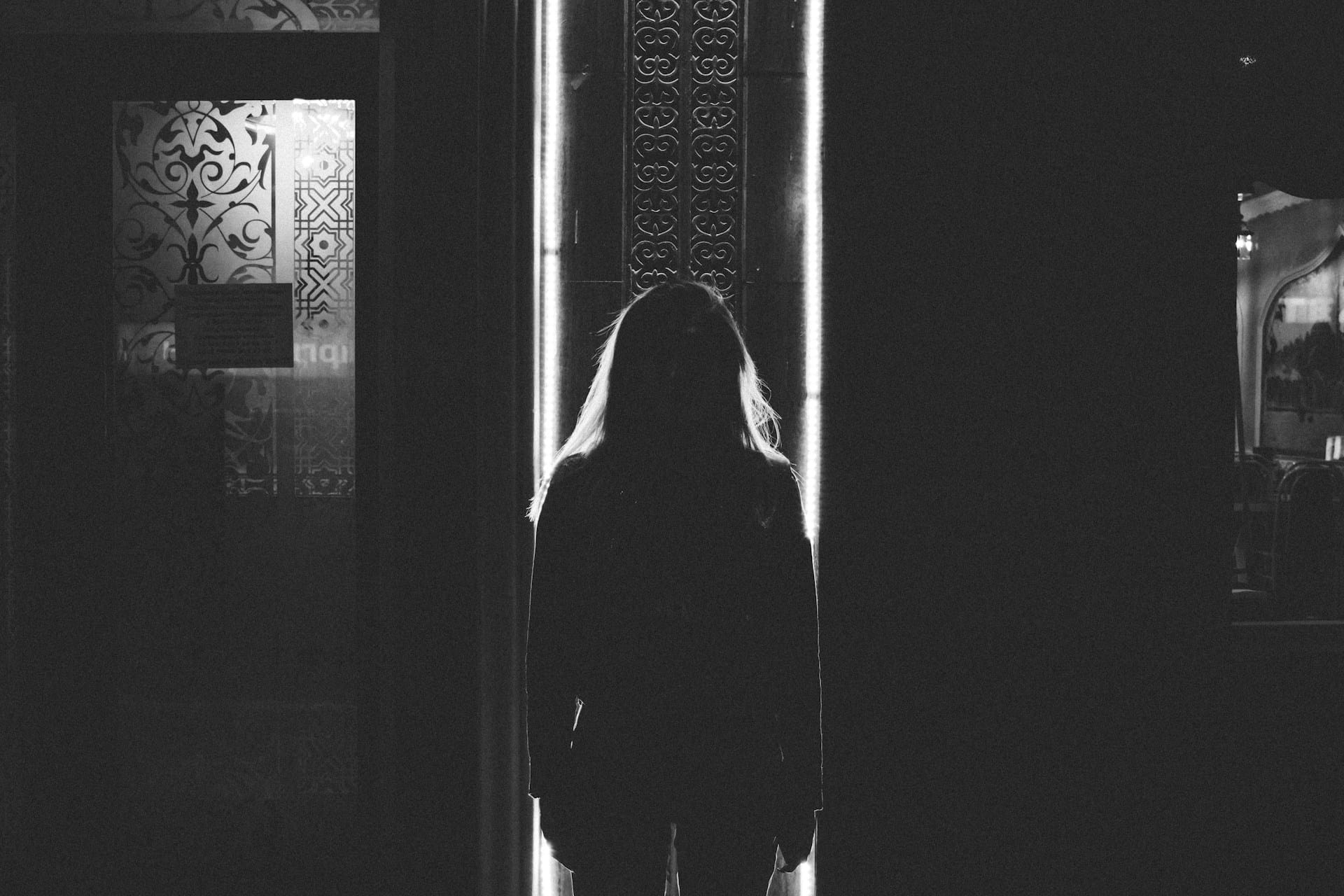My Depression, My Seva
During Ridhima’s first stay at the psychiatric hospital, she felt out of place. She had yet to come to terms with her diagnosis, and wasn’t willing to participate in her treatment. When Ridhima finally accepted her diagnosis, she found power in it.

Story
It all started in January 2019. I had just returned from India after being with one of my closest loved ones who was recovering from a mental illness episode. When I left India, my close loved one was recovering and feeling better, but I could sense that I was not able to overcome the sadness of seeing them unwell. I was replaying the scenes from their illness in my head over and over again. When I left India, I felt alone even when I was with family and friends. I was struggling to hold my six-month-old nephew, fearing I would pass on my negativity to him. I wanted to be left alone with my novel in my own little isolated world. It was hard to explain to everyone what I was going through.
I wanted to embrace death and bring an end to all of this emotional pain manifesting into physical pain or vice versa, I am not sure.
One morning, I was taking the tube to work. I had been teary-eyed, low on confidence, and very sad for many months prior to this morning, but this particular morning I had the strong urge to jump in front of the tube and end this pain I was going through. It was hard to articulate to myself what I was feeling. I remember I felt a hollowness in my stomach which I was filling with a disturbing amount of junk food. I felt a lot of pain in my abdomen. I saw so many doctors, did several MRIs and ultrasounds, yet no one could explain what was causing the pain. I felt alone and hopeless. I wanted to embrace death and bring an end to all of this emotional pain manifesting into physical pain or vice versa, I am not sure. But then my mother’s face flashed before my eyes, and I thought, “I can’t do this to her. How will she ever move forward from the fact that her younger daughter chose to end her life?” Anyway, I boarded that tube and went to work.
 That day I was constantly going back and forth from my seat to the toilet to cry my eyes out and then gather the courage to come back to work. After a few hours, I decided to speak to a doctor at my workplace. He sensed what the issue was, asked me if I had suicidal thoughts and thoughts of self-harm. I said “yes,” and that one yes saved me. I was advised to take time off work and speak to a psychiatrist. I still remember that day very clearly—I went to see the psychiatrist, he listened to what I felt, what happened, and what was going on. He gave a name to the madness going on inside me. I was diagnosed with severe depression and PTSD. He mentioned that I should check myself into a psychiatric hospital and take some medication to recover. My fiancé and I refused both outright. I had always been fine with taking numerous antibiotics for a physical illness, and yet I refused to take medicine and seek medical help for the most important organ in my body: my brain.
That day I was constantly going back and forth from my seat to the toilet to cry my eyes out and then gather the courage to come back to work. After a few hours, I decided to speak to a doctor at my workplace. He sensed what the issue was, asked me if I had suicidal thoughts and thoughts of self-harm. I said “yes,” and that one yes saved me. I was advised to take time off work and speak to a psychiatrist. I still remember that day very clearly—I went to see the psychiatrist, he listened to what I felt, what happened, and what was going on. He gave a name to the madness going on inside me. I was diagnosed with severe depression and PTSD. He mentioned that I should check myself into a psychiatric hospital and take some medication to recover. My fiancé and I refused both outright. I had always been fine with taking numerous antibiotics for a physical illness, and yet I refused to take medicine and seek medical help for the most important organ in my body: my brain.
After ten days of suffering alone at home, off work, fighting the urge to self-harm, and some episodes of psychosis, I finally got approval from my insurer. I checked into a private psychiatric hospital and started with therapy and medication. The world of therapy was new to me. Being in a hospital felt trivial, and I felt as though I was taking up space in group therapy sessions. After several weeks of doing cognitive behavioral therapy (CBT), psychoeducation classes, drama, and art therapy, I still felt hopeless, just waiting for death to come. Everything in my life at that point was perfect, but I was depressed. I was sad, and I thought my loved ones would be better off without me. I was pushing my fiancé, my sister, my friends, and everyone who loved me away. I had given up hope in life and in myself. I somehow convinced myself to get back to work, only to get my first panic attack in a team meeting.
Panic attacks are strange. They make you feel like you are dying.
Panic attacks are strange. They make you feel like you are dying. I remember I held onto one of my colleague’s hands in the meeting. My mind kept telling me, “Don’t let go of this hand; just don’t!”, and I obliged. My psychiatrist was called, and I was asked to go back to the psychiatric hospital. But something was different this time. I was more accepting of my mental illness. I was more open to receiving therapy, taking up time in group therapy sessions, and actively working on making myself better.
When I went to the hospital the first time, I hardly spoke to anyone outside the therapy sessions. I kept to myself, rushed back to my room after the group sessions, and often sat alone eating lunch in my room or alone with my headphones in the cafeteria. I never spoke to the nurses when I was in the hospital for the first time. My second stint at the same hospital was entirely different. I was more open to speaking to the nurses, having meals with friendly faces in the cafeteria, and even going to the gym in the evenings. I think it was the familiarity of the place and also my prior experience that helped.
 In June 2019, I went to India again and saw my close loved one doing well. This was my first time in India after being in the hospital twice. That was a turning point in my life, as it helped me to bring closure to my rumination of sadness. I have the fondest memories of spending time with my nephew and the best pictures with him. I was open to talking about my feelings and explaining to my family what I was going through and how they could support me. I gradually returned to work and started to work full-time in October 2019. When I look back now, I am so glad I checked into the psychiatric hospital, took that medication, and attended all the therapy sessions. Self-work is bloody hard, but if it makes you stay alive, it is worth it.
In June 2019, I went to India again and saw my close loved one doing well. This was my first time in India after being in the hospital twice. That was a turning point in my life, as it helped me to bring closure to my rumination of sadness. I have the fondest memories of spending time with my nephew and the best pictures with him. I was open to talking about my feelings and explaining to my family what I was going through and how they could support me. I gradually returned to work and started to work full-time in October 2019. When I look back now, I am so glad I checked into the psychiatric hospital, took that medication, and attended all the therapy sessions. Self-work is bloody hard, but if it makes you stay alive, it is worth it.
In January 2020, I finally felt like myself again. After almost a year, I felt like I knew this Ridhima. I realized it is a journey with no destination. I have a mental condition called depression. I cannot get rid of it. I don’t have anything to fix. I needed to learn to manage it and own it rather than allow it to own me.
Little did I know that all of the struggles I faced had a purpose. I realized this was my calling, my passion, and my Seva: a Hindi word that means “selfless charity work.”
In May 2019, I decided to sign up with Time to Change as a Champion. It was a campaign run by Rethink and Mind doing advocacy work for ending discrimination against mental illnesses. Being a Champion involved sharing your journey with strangers. In my first talk I spoke to an audience of more than 50 people. It was challenging yet empowering. When I got off the stage, people approached me to tell me how my story resonated with them. Some people hugged me and thanked me for being open and honest about my journey. That’s when I realized my depression is a blessing in disguise. I had always been someone who loved to talk, loved to be the center of attention, and always wanted to do something to give back. Little did I know that all of the struggles I faced had a purpose. I realized this was my calling, my passion, and my Seva: a Hindi word that means “selfless charity work.”
 In May 2020, in the middle of the pandemic, I founded my own mental health awareness campaign called Just Another Illness. Just Another Illness is my passion, my focus, and my way of looking back to see how far I have come. It keeps me grounded, it makes me feel empowered, it gives me a purpose in life, and it reminds me that my illness is just a part of me and not the whole me.
In May 2020, in the middle of the pandemic, I founded my own mental health awareness campaign called Just Another Illness. Just Another Illness is my passion, my focus, and my way of looking back to see how far I have come. It keeps me grounded, it makes me feel empowered, it gives me a purpose in life, and it reminds me that my illness is just a part of me and not the whole me.
This is my story, and I hope it has helped you find hope. There is always light at the end of the tunnel, but to get to the light, you will have to pass through the tunnel first. Therapy is hard, but it is worth it. Medication is harder, but I learned that it was okay to both trust and question my psychiatrist. My loved ones want to help me, but they just don’t know how. I need to learn to forgive them and teach them how to help me. My mind is not my friend, and I don’t have to believe everything it tells me. Believe it or not, I will never be alone. Volunteering with Mind, Time to Change and Just Another Illness has helped me find my tribe. I will continue to find people and build my tribe. I will always extend my hand for help, show my vulnerability, and I know I will find several others like me suffering in silence.
About the contributor
Ridhima Bhasin is a chartered accountant by profession and a mental health advocate by passion. She founded Just Another Illness, an online non-profit campaign, in 2020. She enjoys Bollywood, dancing, painting, and writing poems.